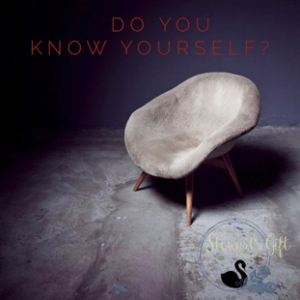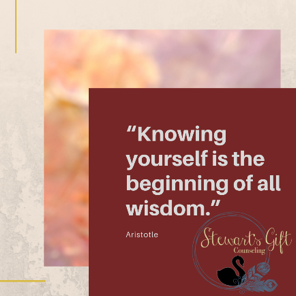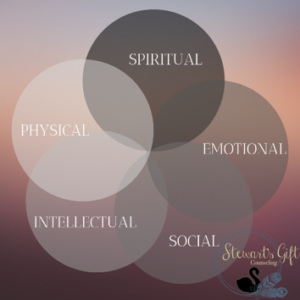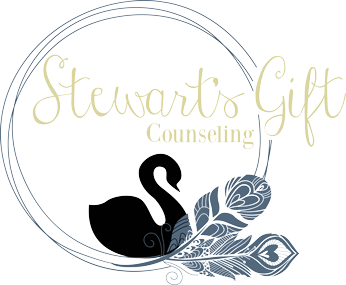Who are you? Identity after Trauma

Life takes each of us through natural significant developmental stages of transitions (infancy, toddler, childhood, adolescence, emerging adulthood, retirement, etc.). Each of these transitional stages requires us to develop a new part of our identity. This can be complicated by a plethora of decisions we are faced with. If we do not transition well due to life circumstances or if we experience a trauma during these delicate times in life, identity can be weakened or lost. DO YOU KNOW YOURSELF?
An area I love to counsel is identity work. It is empowering to explore your true self, to find acceptance of self, and to live out an authentic life! What exactly is personal identity? The American Psychological Association defines it as follows: an individual’s sense of self defined by a set of physical, psychological, and interpersonal characteristics that is not wholly shared with any other person and a range of affiliations and social roles. Let’s break this down, because identity development sounds overwhelming to most, but it does not have to be.

There are five areas that make up one’s identity. It is important work to intentionally check-in and develop these areas of yourself at each transitional period of life:
SPIRITUAL, EMOTIONAL, SOCIAL, INTELLECTUAL, PHYSICAL.

I want you to take some time to consider who you are right now in each of these areas. These can be positive or negative. Be honest and real with yourself, it’s the only way growth and change happen in the needed direction. Here are some common answers below to help you get started:
SPIRITUAL:
Forgiven, non-spiritual, child of God, prayer warrior, etc.
EMOTIONAL:
Stable, unstable, anxious, etc.
SOCIAL:
Introvert, extrovert, life of the party, small group of friends, etc.
INTELLECTUAL:
Bookworm, stupid, smart, etc.
PHYSICAL:
Tall, short, athletic, out of shape, brown eyes, etc.
What was this exercise like for you to think about your entire identity? Was there an area that was easiest for you? Was there an area you struggled to identify yourself with? An area that made you feel empowered? Areas that shrunk you down a bit? An area that feels vulnerable or upsetting? It is important to explore your identity because this is what makes you who you are. A strong identity will propel you through life and give you confidence. A strong identity makes you able to look past your weaker parts of self and still hold your head up high. A weakened or loss of identity results in isolation, depression, anxiety, social camouflaging, high chaos. Most impactful and overarching is the lowered confidence a weak identity creates.
In counseling I love exploring identity of those who have experienced trauma during critical developmental stages of life or who have a life story that forced them to breeze past identity building because it is life changing. Some examples of non-traumatic experiences would be an overly academic/career focus with extremely low/no socialization or becoming a young parent sacrificing socialization, exploration of life opportunities, and self-sacrificing.
If I asked you “WHO ARE YOU?” how would you answer that?
Don’t think about it, just state what comes to mind. Is it relationally based identity: mother, father, sister, friend, etc? Or, is it career based: scientist, teacher, engineer, etc? Is it religious/spiritually based: child of God, Christian, Buddhist, atheist, etc? We tend to put all of our eggs into one basket and limit our identity. What would it be like to accept ALL of who you are? To know and honor ALL parts of yourself: spiritual, emotional, social, intellectual, and physical?
In counseling we will explore and discover who you are now and who you would like to be in each of these areas. It is my greatest joy to see people come to life and to be part of their journey and development. Seeing people come in depressed, anxious, chaotic, misunderstood, devalued, and displaying a low self-confidence. With identity work you learn to love WHO you are. It is not performance-based acceptance. It’s not dependent on other people. It is about YOU and who YOU were created to be!

Identity work is a critical component of trauma-based therapy.
Exploring who you are outside of the belief bias you have been raised with and to explore who you are as you learn to come out from behind the wall you have been hiding behind.
Step 1) Get to know yourself
Step 2) Grow yourself
Step 3) Share yourself with safe people
Step 4) BeYOUtiful!
“For we are his workmanship, created in Christ Jesus for good works, which God prepared beforehand, that we should walk in them.” Ephesians 2:10
“To put off your old self, which belongs to your former manner of life and is corrupt through deceitful desires, and to be renewed in the spirit of your minds, and to put on the new self, created after the likeness of God in true righteousness and holiness.” Ephesians 4:22-24
